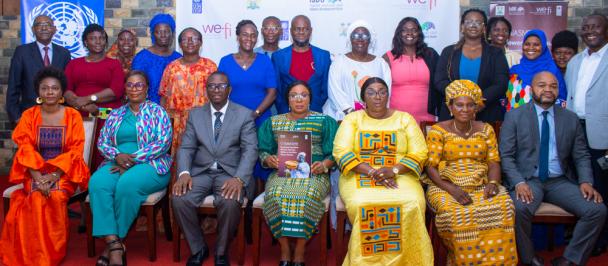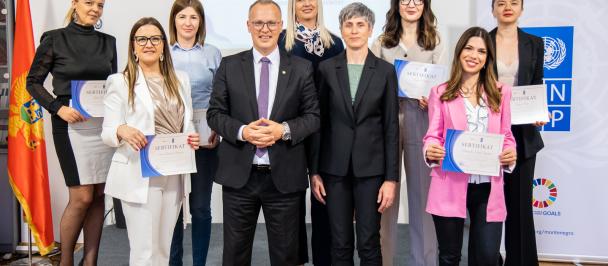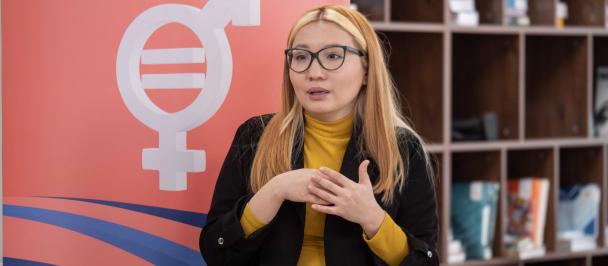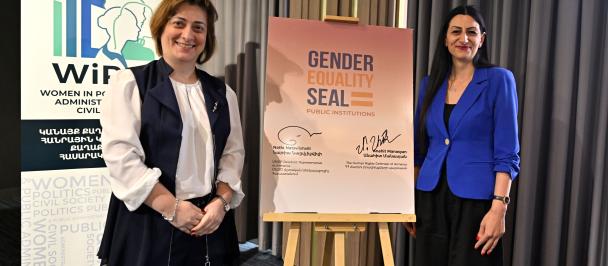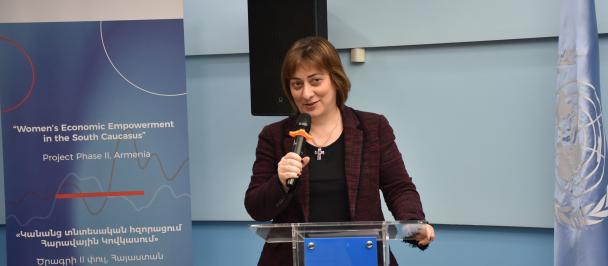Trainers to advance the Gender Equality Seal for Public Institutions (GES-PI) in Africa
November 27, 2022
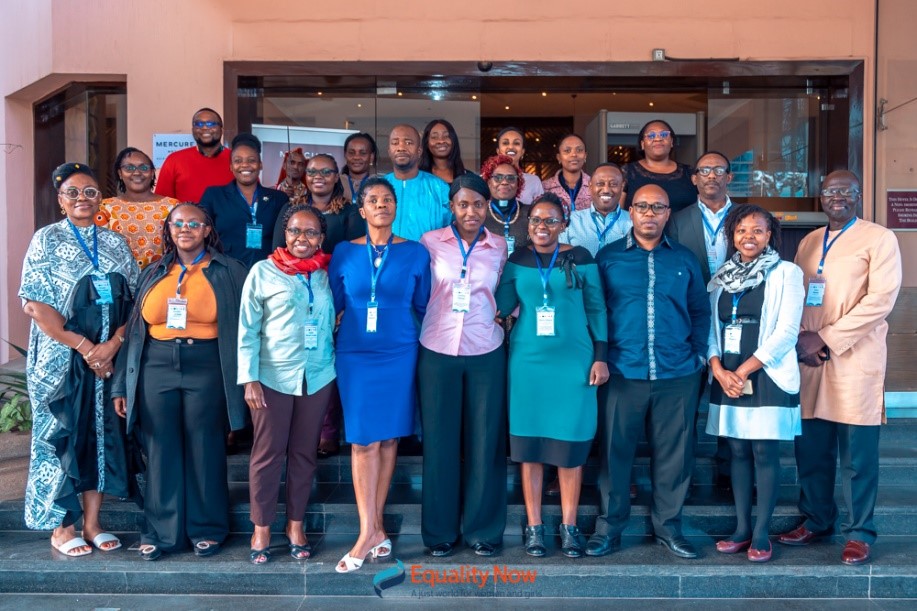
Trainers to advance the Gender Equality Seal for Public Institutions (GES-PI) in Africa
Addis Ababa, 24 November 2022 - The UNDP Regional Service Centre for Africa, with the support of the Government of Canada, held the first regional Training of Trainers on the Gender Equality Seal for Public Institutions (GES-PI) in Africa from 14 to 16 November 2022, in Addis Ababa, Ethiopia.
Nearly 40 representatives attended the three-day training, including representatives from the Regional Economic Communities (RECs) of the Economic Community of West African States (ECOWAS), the Intergovernmental Authority on Development (IGAD), the Southern African Development Community (SADC), and the Economic Community of Central African States (ECCAS). Officials from Uganda, Rwanda, Zimbabwe, the Democratic Republic of the Congo and South Africa, as well as regional gender experts from UNDP Country Offices, also participated in the training.
The regional training was organized as part of UNDP’s regional project on Advancing Gender Equality and Women’s Empowerment in Africa, supported by the Government of Canada. The goal was to strengthen the capacity of regional partners, including RECs and regional civil society organizations (CSOs), as advocates to assist Member States to fulfil their gender equality commitments.
The programme aims to establish a pool of regional gender advisors to support the implementation of the Gender Equality Seal for Public Institutions in Africa. The training provided a platform for attendees to exchange experiences and build a network of trainers to facilitate experience-sharing beyond the training sessions.
“UNDP is committed to continuing to partner with regional and national partners on advancing gender equality and women’s empowerment through the rollout of programmes like the GES-PI. UNDP will continue to invest in capacity building initiatives in the region to equip a pool of regional experts and facilitators with the skills, knowledge and tools that will enable them to accompany the public sector in Africa in fulfilling gender equality.”
- Odette Kabaya, Regional Gender Advisor and Team Lead, UNDP RSCA
The Gender Equality Seal for Public Institutions is a voluntary awarding programme designed to support and recognize public institutions’ efforts to achieve substantive gender equality between men and women, therefore accelerating the attainment of the 2030 Agenda for Sustainable Development. It provides a practical roadmap for implementing institutional reforms to ensure that gender equality concerns are integrated into their operations.
"The Gender Equality Seal in Public Institutions tool, championed by UNDP, is a great tool that can assist in modelling gender equality outcomes in the public sector. The tool can aid us in making tangible and measurable progress toward the achievement of SDG 5 (Gender Equality), SDG 8 (promote sustained, inclusive, and sustainable economic growth, full and productive employment, and decent work for all), and the AU Agenda 2063."
- Tsitsi Fungurani, Senior International Assistance Officer, High Commission of Canada
The programme is presently being implemented globally in four regions, covering 16 countries in 63 public institutions and four regional organizations in Africa, namely ECOWAS, ECCAS, IGAD, and SADC, as well as four member states, including the DRC, Rwanda, South Africa, and Uganda.
About UNDP
UNDP is the leading United Nations organization fighting to end the injustice of poverty, inequality and climate change. Working with our broad network of experts and partners in 170 countries, we help nations to build integrated, lasting solutions for people and planet.
About Gender Equality Seal for Public Institutions
Gender equality is a fundamental human right and the foundation for a peaceful, prosperous and sustainable world. Even so, gender remains one of the most pervasive forms of discrimination across all areas of life. While gender inequalities can affect anyone, impeding progress on global human development, it is women and girls who face the most prejudice.

 Locations
Locations